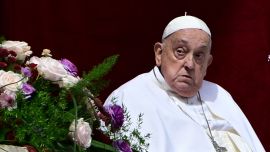TARIFFS AND UTILITIES DOMINATE
Aided by Buenos Aires province Governor María Eugenia Vidal’s tax-cut initiative, President Mauricio Macri sought to place the burden of responsibility on the provinces to ease the impact of steep public utility increases, preparing a bill to remove all provincial and municipal taxation from gas, electricity and water. This was not the only legislation proposed – the opposition has drafted no less than 29 different bills with the common objective of rolling back the increases in various degrees. On Wednesday, Congress achieved quorum for a session (frustrated the previous week) but could not pass any of these bills, which would require a two-thirds majority as skipping committee and would face a presidential veto. Meanwhile, Macri’s drive to eliminate provincial and municipal taxation was also encountering pushback – some governors asked why national levies such as IVA value-added taxation were not included in the waiver while the mayors of Buenos Aires province successfully pressured the provincial assembly to omit municipal taxes from Vidal’s bill.
ONE STAT, TWO WAYS OF READING
February’s growth figures offered arguments for both optimists and pessimists – the economy surged 5.1 percent on a year-on-year basis but mainly because the previous February was sharply recessive with a contraction of -2.6 percent but when compared with the first month of this year there was a slowdown of 0.2 percent. The February figures project to a 2018 growth rate of 2.3 percent.
ANOTHER DAY, ANOTHER SHIFT ON THE DOLLAR
If Tuesday’s Central Bank sales of US$422 million were already the year’s highest until then, they were nothing compared to what was to follow – on Wednesday an all-time record of US$1.47 billion, fully 2.6 percent of total reserves, which fell below the US$60-billion mark only to be drained by a further US$853 million on Thursday. Intervention on this scale was temporarily successful in its objective of keeping the dollar static as an antidote to an inflation fuelled by steep gas bill and other public service increases but the dollar could not be tamed for long, surging from 20.25 pesos early in the week to 21.19 pesos at one point. By print time, it had closed at 20.88 pesos and the bank raised rates to 30.25 percent. Wednesday’s pressure on the dollar was compounded by foreign investors divesting their Lebacs just ahead of the extension of the five percent financial levy to them, thus releasing 45 billion pesos at a stroke, in a global context of devaluation on most emerging markets.
PIÑERA, MACRI ON SAME PAGE
In only the second month of his second presidential term, Chilean President Sebastián Piñera paid a state visit here on Thursday. Unsurprisingly, he seemed to be on the same page as his cente-right host Mauricio Macri on virtually every issue. The two presidents spoke of integrating the energy grid and trade across the Andes, also finding time for a cosy chat with Nobel Literature Prize winner Mario Vargas Llosa featuring a common critique of populism. So close does Piñera feel to Argentina that he has tried to name his brother Pablo as future ambassador here, a move that sparked immediate criticism of nepotism from the Chilean opposition.
THE NARCO-LANDS
In a weekend television interview Security Minister Patricia Bullrich described Holland as degenerating into a “narcostate” as a typical example of the consequences of legalising drugs, a verbal overkill obliging her to apologise to the Dutch Embassy for the insult toward a country whose reigning couple includes Argentine-born Queen Máxima. On Thursday, the Times atended the Dutch Royal Birthday reception (whose many guests did not include Bullrich) where outgoing Ambassador Martin de la Beij (who ends his mission in August) made a point of featuring joint action against drug-trafficking as one of the many areas of positive interaction between the two countries.
JUSTICE IS BLIND?
The City Bar Association on Tuesday elected Eduardo Awad as its first blind president. Awad’s list, which was backed by the ruling PRO centre-right party, triumphed over indepedent, Radical and leftist rivals.
PROTESTS AT OPENING OF BA BOOK FAIR
For a second year in a row, the inauguration of Buenos Aires’ International Book Fair was a heated affair as protesters faced off with Culture Minister Pablo Avelluto over the proposed closure of 29 teacher training institutes. The tension played out in the Jorge Luis Borges Salon at the Rural Society showgrounds in Palermo, where last year printing industry leaders took to publicly criticising Avelluto for a perceived lack of government protection against plummeting sales. As was the case last year, the Culture minister did not shy away from confrontation.Protesters flooded the event, the 44th edition of the festival, with signs and protest songs. In attendance were City Culture Minister Enrique Avogadro; Book Foundation president Martín Gremmelspacher; Arts and Humanities director of the Municipality of Montevideo, Uruguay, Juan Canessa; and author Claudia Piñeiro. The protest lasted half an hour with Avelluto giving its leaders the chance to speak over the microphone. “You’re not going to tell me what democracy is,” he yelled at them. The man who eventually spoke called on the government to refrain from implementing a bill that would close 29 training colleges and, according to unions, cut 12 percent of the education sector’s budget. Avelluto took to Twitter later, describing the protesters as a “gang of authoritarians.”
POVERTY LINE INDEC
This week set the limit that a household of two adults and two children would need to fall below to be considered poor: 17,867.28 pesos. For exteme poverty, the figure is 7,090.19 pesos.























Comments